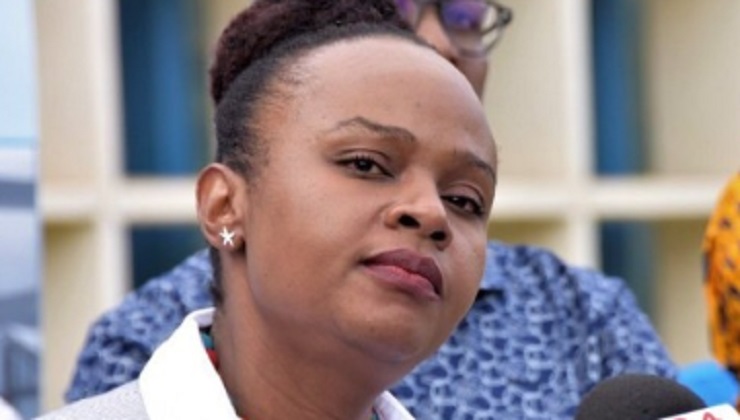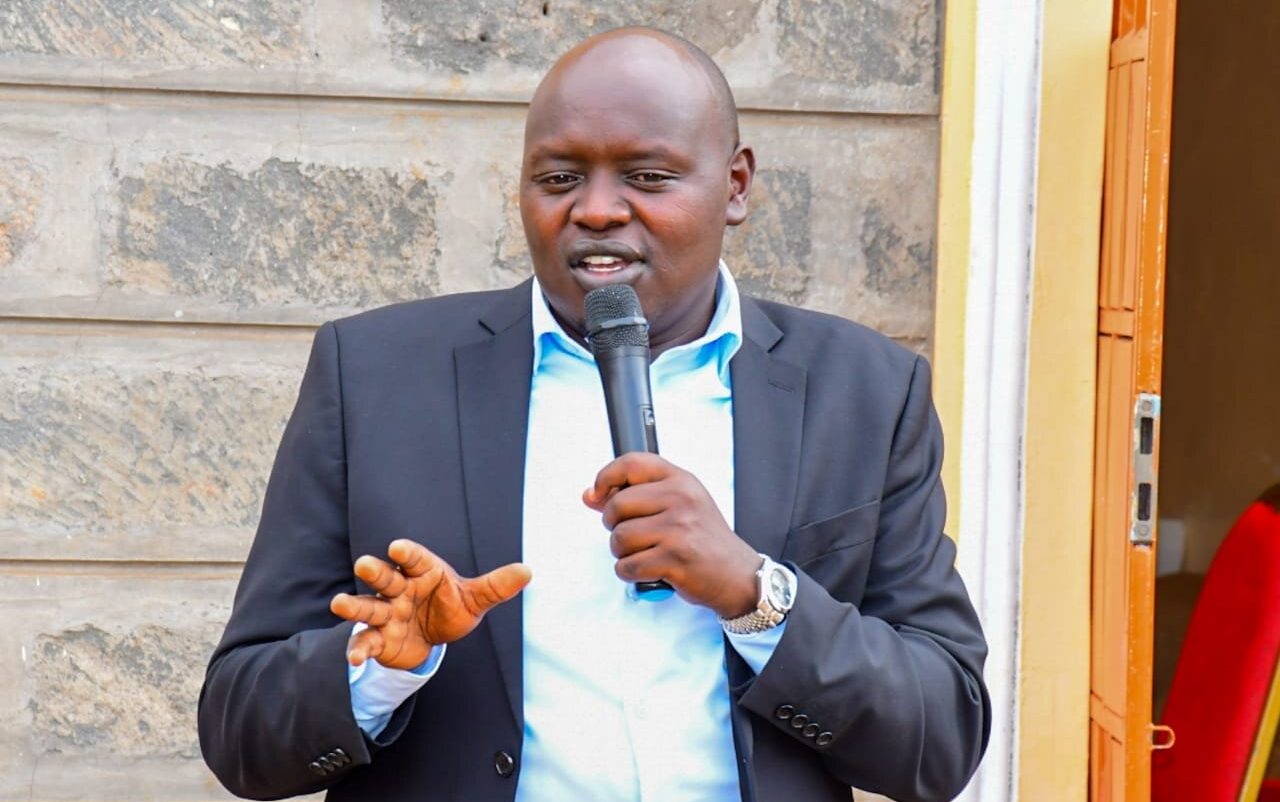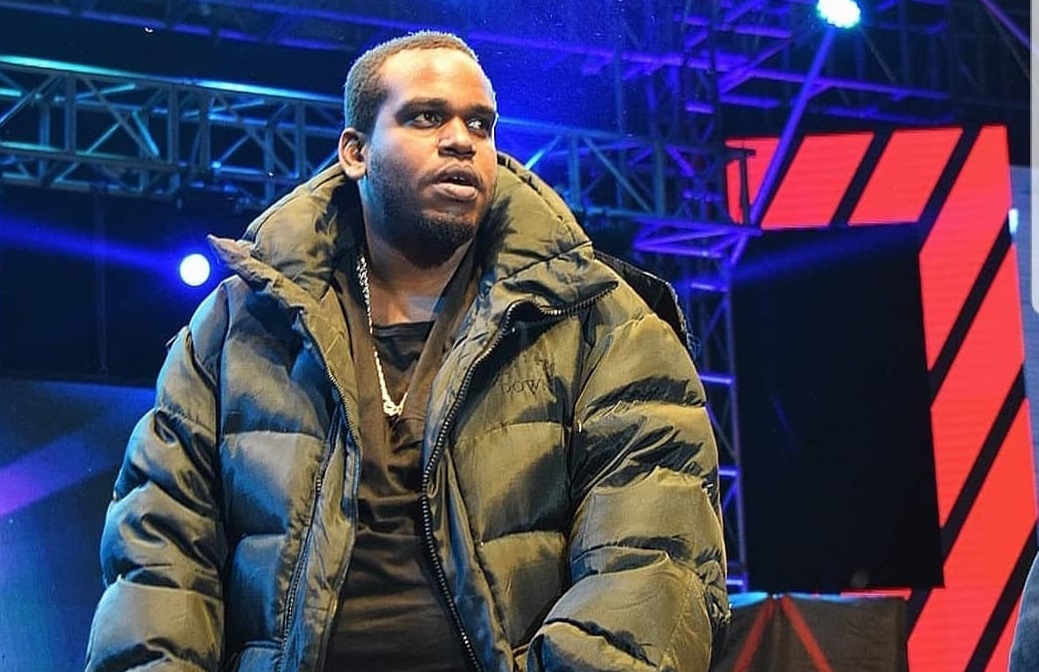At 33 years of age, Health Chief Administrative Secretary (CAS) Dr. Mercy Mwangangi wears the face of a confident woman, who has her life in perfect trajectory: proper education, comely to the eye, composed, and has an undeniable comprehension of what she is supposed to do in her professional field.
Until last Saturday, April 25, little was known about the CAS’s personal life: her relationship status, her age, her hierarchy in the order of siblings, her regrets and future ambitions.
In a candid interview with KTN’s Dr. Mercy Korir aired last Saturday, Dr. Mwangangi answered all the questions Kenyans on social media, particularly men, have been asking about her.
Is she married? No, but she is in a stable relationship with a partner she describes as “very supportive”.
“I am highly married to my work, but I do have a partner who is very supportive, and he is another cheerleader on my court,” she told Dr. Korir, when the Health Digest host asked whether Dr. Mwangangi is “committed to a physical person besides her work”.
The first-born in a family of two (Dr. Mwangangi and her 23-year-old brother), revealed that, unlike a section of women of her age — who would be subjected to pressure by family to settle down –, her relatives are yet to mount any coercion on her.
“While most people around my age — 33 — would be inundated with lots of questions from aunties, mothers, fathers, grandmothers about settling down and having a family, my father is usually my biggest cheerleader,” she said.
“If you asked him (father) right now, he is probably planning for my next job: what I should be doing. If you asked him, he probably thinks that I am able to take over the world; he is constantly pushing me to be my best self. I thank God for that support,” said Dr. Mwangangi.
The CAS was born in Machakos in 1986. She attended the esteemed Pangani Girls’ High School, and later enrolled for a Bachelor of Medicine and Surgery degree at the University of Nairobi, where she graduated in 2009. Dr. Mwangangi would — a few years later — pursue her Master’s Degree in Health Economics and Policy from the University of Adelaide in Australia. Prior to that, she had had stints at the Machakos Level 5 Hospital as an intern and later in Tharaka-Nithi County as a public health official.
She attributes her rise in public service to commitment and grabbing opportunities when they present themselves.
“The biggest fear I have is to be given an opportunity to effect change, and I fail to utilise that chance,” she said.
Dr. Mwangangi is a strong proponent of: what a man can do, a woman can do too, and according to her, the vocabulary “male-dominated field” does not exist.
“The very idea of distinguishing or boxing environments by gender perhaps is usually the first misstep for us as a society or country. My CS, Mutahi Kagwe, has been absolutely wonderful in being an able and worthy mentor, and has provided me with the opportunity to use my talents, both in advising and working with him. These spaces are there, they are available. You just require support around you to be able to shine,” she said.
Until the coronavirus crisis hit Kenya, little was known about Dr. Mwangangi at the Health ministry. She says the spread of the contagion in the country has eaten into her personal time, given she spends most of her time working, devising ways the ministry can help curb the virus’ escalation. She doesn’t complain, nonetheless.
“Despite the grueling [work] hours we are putting during this coronavirus [crisis], I thoroughly enjoy my work, and I wouldn’t be doing anything else,” said Dr. Mwangangi.
She says she’s added some calories, as her work entails being at the office most times, and now, the additional Kgs are “worrying her”.
“My biggest regret could be the few [body] kilograms I have added to my weight (laughs). And, this is because I spend a significant part of my time sitting in the office. However, this (weight gain), is something I will be working on in the few months to come, especially post coronavirus crisis. I have probably neglected the few spaces where I am able to pay a little more attention to myself as an individual,” said Dr. Mwangangi.
Apart from her father, who she describes as her Number One champion; and, of course, her partner, Dr. Mwangangi says her younger brother and only sibling, a professional photographer, is another of her biggest cheerleader.
“My younger brother, Mike, is quite supportive, and you wouldn’t imagine we have a 10-year gap between us. It is interesting that every other time after I give a press briefing, he calls me and reviews my performance. He often asks questions, and gives me all these tips and advice. [He would often say], ‘next time emphasise on this point; next time, call out Kenyans for doing this; next time, don’t say that…’ He is a very talented photographer,” said Dr. Mwangangi.
Now she has attracted nationwide fame; people know her, people talk about her; she has shown she can get the work done. Does she dream of venturing into politics in the future?
“Should I say ‘all the villagers and people back at home are brewing the next political seat for me to be in’. I feel in whatever spaces we are in, and whichever leadership roles we are given, there is a responsibility for us to effect change. It is very hard to divorce yourself from that space by virtue of saying you are in a technical space,” she said.
“Would I be willing to represent people in a purely political seat? I think I have not ruled that (political position) out. However, right now I think the space, I am in provides me with the opportunity to be able to learn how to translate what the needs of the community are in actionable states, while still having that engagement with the political class. The future is wide open.”










